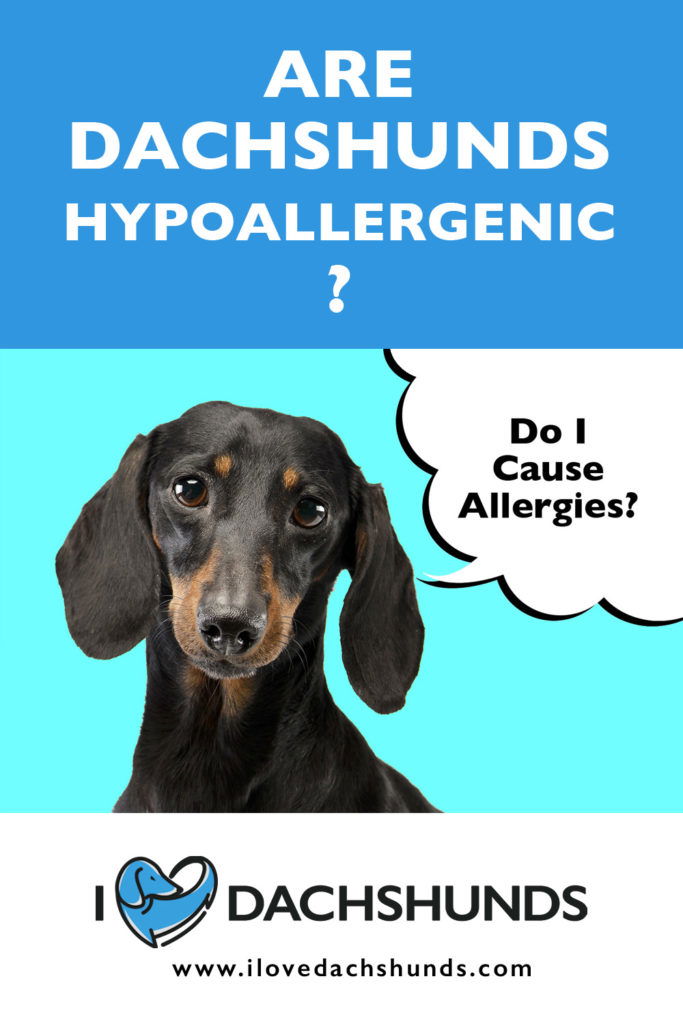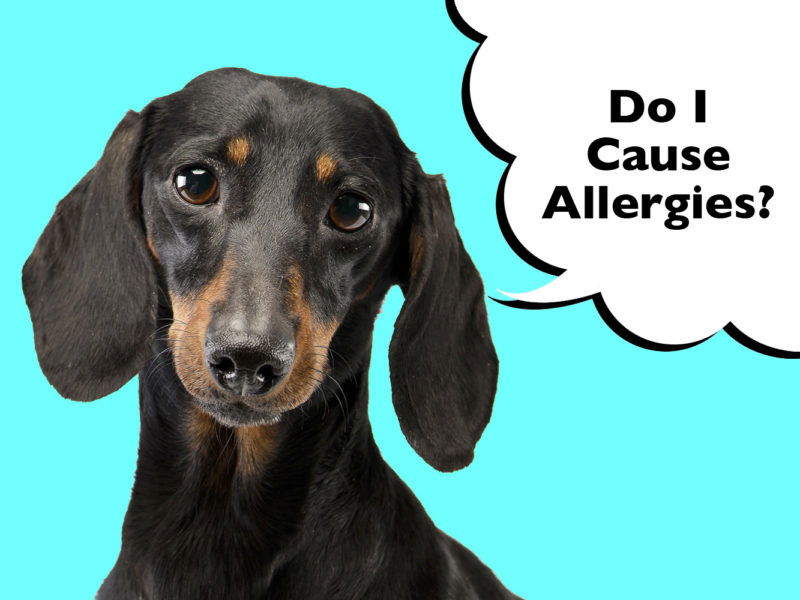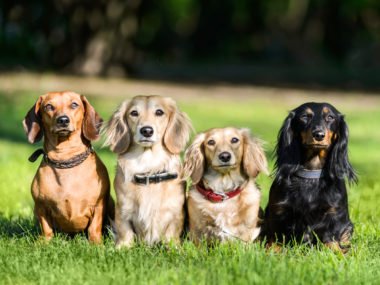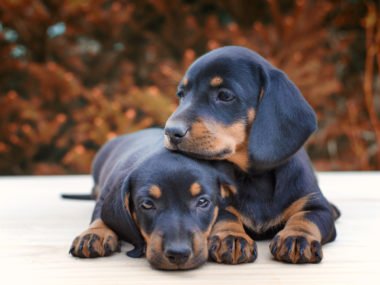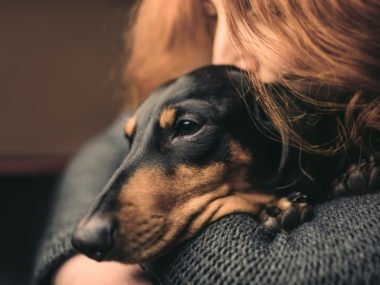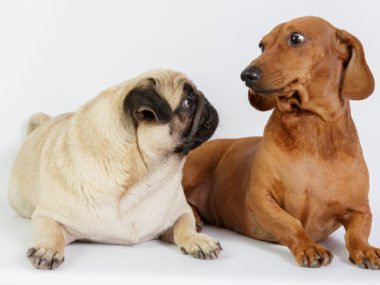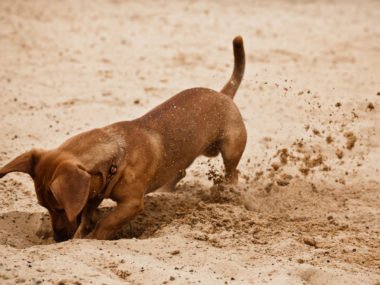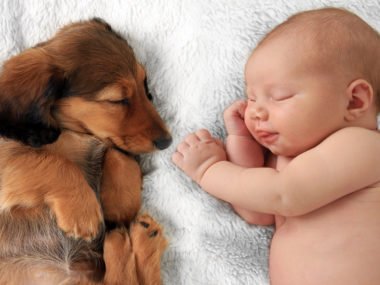Are you an allergy sufferer who wants to get a Dachshund? Do you want to know if Dachshunds are hypoallergenic? Here’s everything you need to know about Dachshunds and allergies.
Are Dachshunds Hypoallergenic? No, Dachshunds are not hypoallergenic because no dog truly is. However, that doesn’t mean allergy sufferers can’t live with them. Wire Haired Dachshunds don’t shed as much as Long or Smooth Haired Dachshunds and may be a better option for those with allergies.
Read on to find out why owners get allergies to Dachshunds and what you can do to make symptoms easier in the home.
Table of Contents
This article is based on research and personal experience as a Dachshund owner of 10+ years. I’m not a Vet, qualified dog trainer or dog behaviourist.
What Is A Hypoallergenic Dog?
Some people claim that certain breeds of dogs don’t cause allergy issues for people who tend to be allergic to dogs.
Most commonly, it’s claimed that they don’t shed hair, which makes them hypoallergenic.
Examples of dog breeds that tend to be marketed and sold as hypoallergenic are Poodles, Bichon Frise, Maltese, Mini Schnauzers and crosses of these breeds as well.
However, in reality it’s not as straight forward as this.
Each person and each dog are completely individual. So it’s impossible to say with 100% certainty that a dog will or won’t cause an allergic reaction for a person.
Essentially, there’s no such thing as a truly hypoallergenic dog. There is in fact no breed or crossbreed that can be considered completely allergen free.
However, it’s true that some may be less likely to cause flare-ups for allergy sufferers.
There have also been some links found between the size of dog and severity of allergies.
And, because Dachshunds are small in size, this may go some way to helping allergy sufferers, as they simply don’t have as much hair to shed as larger breeds.
So, whilst Dachshunds are not hypoallergenic, they may be less likely to cause allergic reactions compared with some other dog breeds.
But, it’s important to note that allergies are very individual to each person. The only way to know for sure is to spend time with the puppy prior to bringing them home.
What Causes People To Be Allergic To Dachshunds?
Despite common misconception, it’s not actually the dog hair itself that triggers allergic reactions in humans.
It’s actually the dander that’s attached to the dog hair, which is similar to dandruff, that causes the trouble.
People can also be allergic to their Dachshund’s saliva sometimes too, or their urine and faeces, although these are less common.
What Are the Symptoms Of Allergies To Dachshunds?
Allergic reactions to Dachshunds may include symptoms like wheezing, a runny or itchy nose, sneezing, coughing, itchy eyes and skin rashes.
The symptoms can range from mild and a bit annoying, to much more severe where either allergy treatments or re-homing of the Dachshund may need to be considered.
That’s why it’s so important to try and work out if you are allergic and how severe your allergies are, before bringing your puppy home.
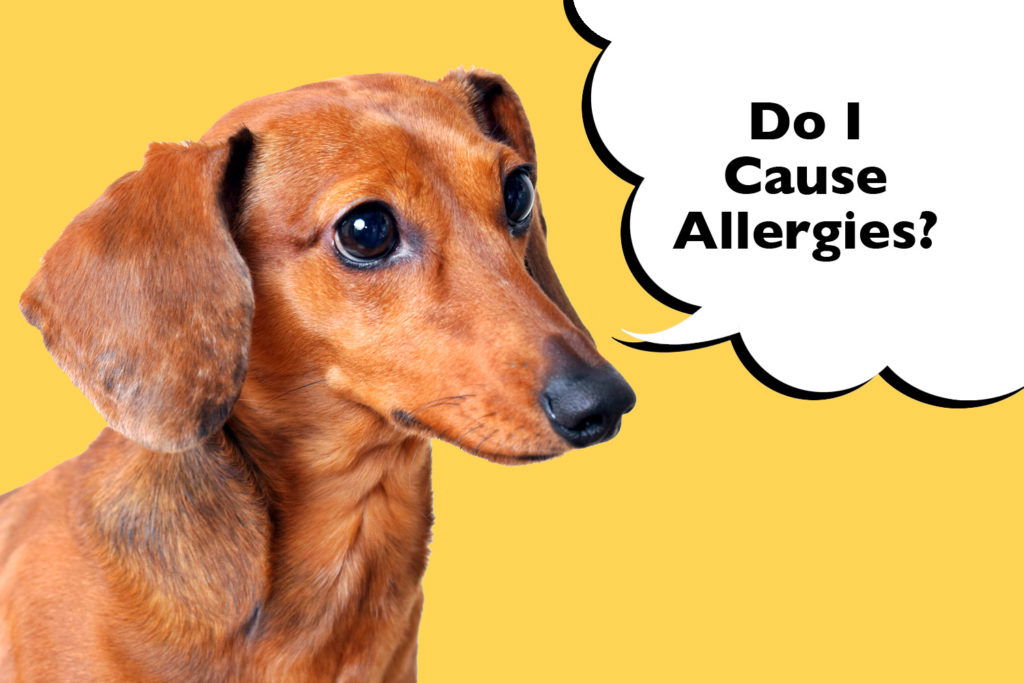
Does A Dachshund’s Coat Type Make A Difference To Allergies?
There are 3 different coat types that Dachshunds can have. You can get Smooth Haired, Long Haired or Wire Haired Dachshunds.
Although it’s not your Dachshund’s hair itself that causes allergic reactions, the less hair they shed, the less likely they are to cause problems for you.
Smooth-Haired Dachshunds are considered moderate shedders, which means they to tend to lose a fair amount of hair.
They also lose hair constantly, not just once or twice a year. This can make it trickier to manage allergies in the home.
Long-Haired Dachshunds tend to lose the most hair out of the 3 coat types. They’re double coated, so they usually shed twice a year in the spring and autumn months.
Because their hair is longer it’s more noticeable around your home. Making it easier to remove than the short hairs of Smooth-haired Dachshunds.
Similarly to Long-haired Dachshunds, Wire-Haired Dachshunds only tend to lose their coats twice a year.
They too are double coated. Meaning they’ve got a soft fluffy under layer of fur, covered by a wirey layer on top.
They don’t tend to lose too much hair around the home as they usually require grooming from a professional, to strip their wirey hairs effectively.
Some Wire-haired Dachshunds are known to have ‘pin-wire coats’ which require even less maintenance than a normal Wire-haired coat.
Basically, ‘pin wires’ just have less wire hairs!
From an allergy perspective they may be a better option, as they tend to lose the least amount of hair of any Dachshund coat variety.
However, there are no guarantees this will be the case, so you should always consider it on a personal basis.
If you can, it’s a good idea to spend as much time as possible with the puppy before bringing them home. Most breeders will be understanding and try to accommodate this.
Allergies are so individual. There’s simply no way of knowing for definite if you’ll be allergic to a particular Dachshund, until you actually spend time with them.
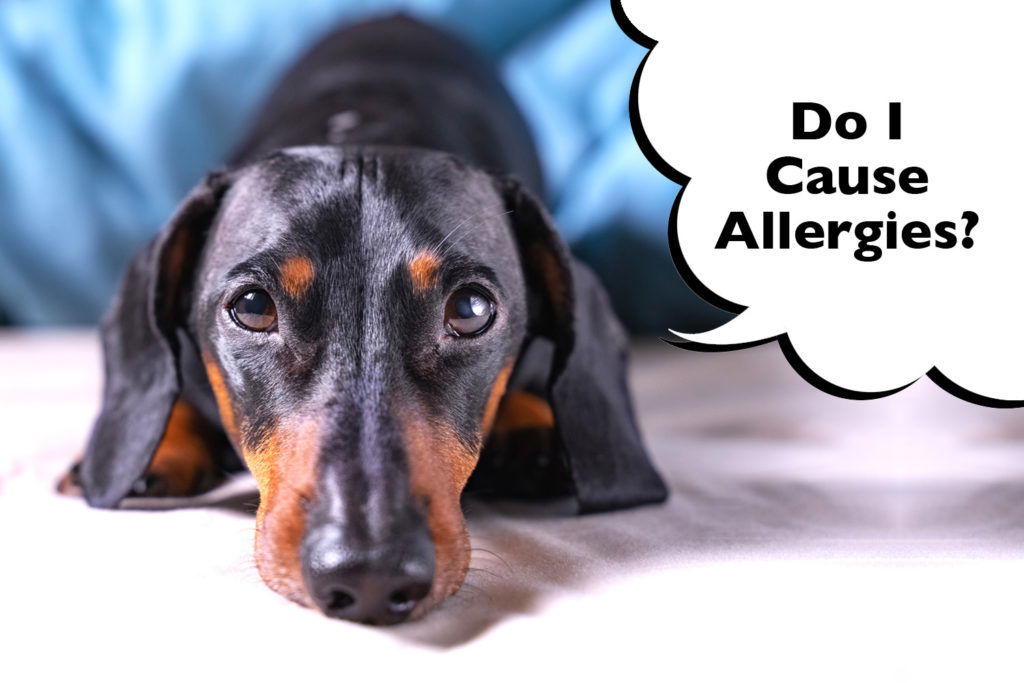
What To Do If You Are Allergic To Your Dachshund
Whilst it’s not possible to actually make your Dachshund more hypoallergenic, there are some steps you can take to make living with a Dachshund that you’re allergic to more manageable.
This is what to do if you are allergic to your Dachshund:
Vacuum your home regularly
Vacuum your home regularly, ideally with a vacuum cleaner that’s specifically designed for pets.
These usually contain special HEPA filters, designed to pick up as much dander and hair as possible, which reduces the severity of allergic reactions.
Concentrate particularly on soft furnishings and carpets, as these tend to attract dog hairs the most!
Groom your Dachshund regularly
Regardless of whether your Dachshund has a smooth, long or wire-haired coat, you need to groom them regularly, in a well-ventilated area.
You should brush them regularly too, to get rid of any dead fur.
Doing this every day should remove any loose hair before they end up shedding it all over your soft furnishings!
This’ll help you to keep on top of the amount of hair they’re shedding around your home.
Keep your Dachshund off the furniture
If you let your Dachshund sleep on the bed with you, particularly if they’re allowed to sleep on or near to your pillow, it can make your allergies worse.
The same is true of letting them sit or lay on the sofa with you.
If you’d like them to spend time on the sofa with you, it’s best to get a blanket which covers the part of the sofa they’re allowed to lay on.
This can then be folded up and washed much more easily than trying to clean the sofa itself.
Feed your Dachshund a high-quality diet
If your Dachshund is fed a low-quality food, not only will this impact their overall health and wellbeing, but it may contribute to them shedding more hair.
If their coat is in poor condition, they’re likely to lose more of it, more frequently.
Wash your Dachshund’s bedding regularly
By washing your Dachshund’s beds and blankets regularly, this may help with allergies.
You can also get special bags to place their bedding into, before putting them in the washing machine, which catch any loose hairs and stops them clogging your washer.
This will also limit the transference of hairs onto other items of washing.
Ideally, you should wash your Dachshund’s bedding separately from your own washing and rinse the machine afterwards too.
Use damp cloths to dust around the home
By using a damp cloth or duster instead of a dry one, you’re less likely to be simply lifting the dust particles back into the air. Instead, the damp cloth traps them and you can rinse them away.
The more dander particles that are circulating in the air, the higher the chance of allergies being flared.
Don’t let your Dachshund lick you
If you get an allergic reaction to the saliva of your Dachshund, try to discourage them from licking you. Particularly on bare skin such as your hands and face.
If they do lick you, wash the area quickly to reduce the time the saliva has been in contact with your skin.
Use an air purifier
Air purifiers collect any dander or dog hair that’s floating around in the air. Empty them regularly to keep allergic reactions reduced.
Consider removing carpets and rugs
Whilst this isn’t a viable option for everyone, it can help to replace carpeted areas or rugs with hard flooring.
This means that no dog hair or dander from your Dachshund can be trapped in the soft carpets or rugs.
That way you can steam floors regularly to help keep allergies at bay!
To find out how much Dachshunds shed, click here!
So, that’s the long and the short of it! Dachshunds are not hypoallergenic but some people that suffer with allergies (including myself!) can live with them. Wire Haired Dachshunds don’t shed as much hair as Smooth or Long Haired Dachshunds. This may make them a better option for those with allergies. However, allergies are very individual and every person is different. So the only way to know for sure is to spend time with the puppy before bringing them home.
What do I do next?
If you read all the way to the end of this article, you’re exactly the sort of person I’d LOVE to join my Facebook Group. Your support for my blog means everything to me so, if you found this article helpful, please kindly share below. Thank you! 💋
